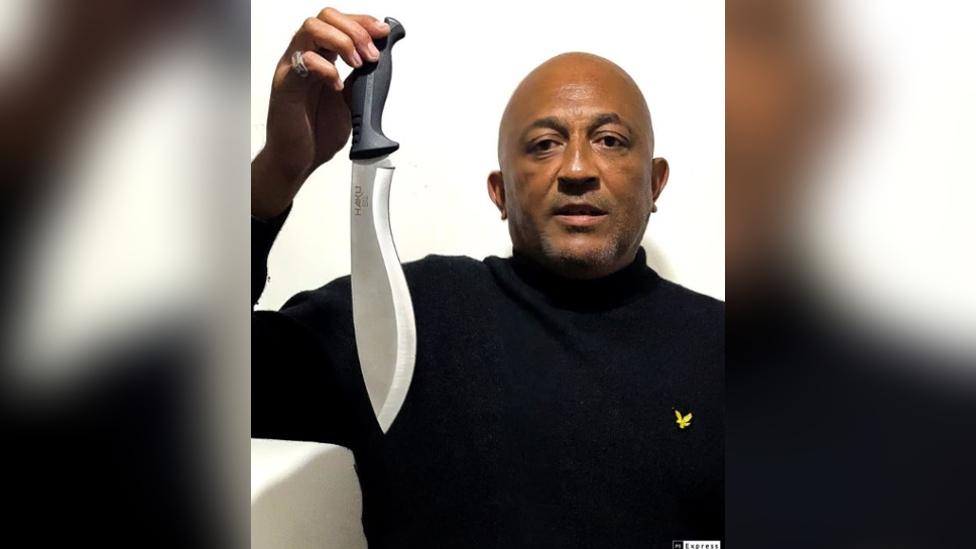Knife crime in Bristol: Your questions answered
- Published
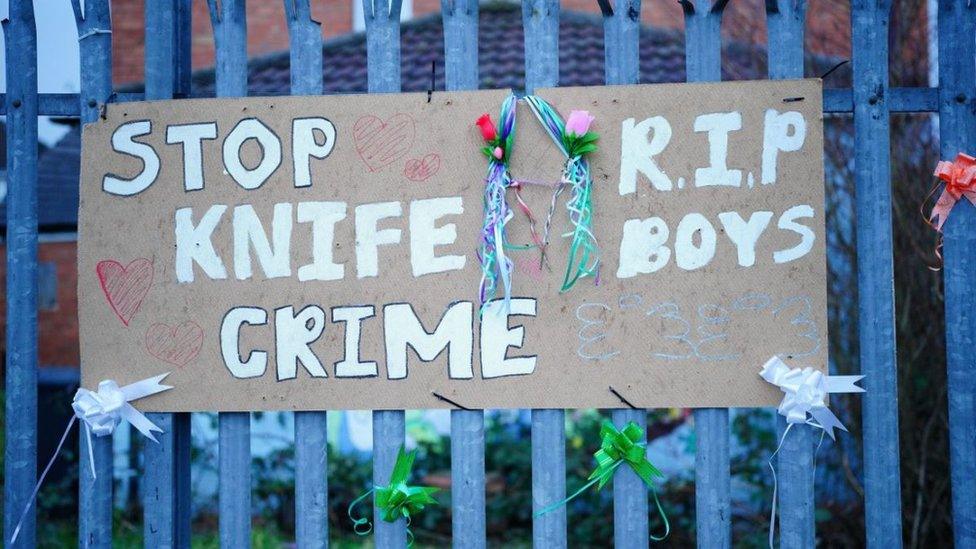
Organisations across Bristol are calling for better action after a series of deaths
Over the space of 18 days at the end of January and into February, three teenagers in Bristol lost their lives in fatal stabbing attacks. On Tuesday, a 30-year-old man also died after being stabbed in an altercation.
Community groups, leaders and media organisations in the city are now saying "enough is enough".
Here we look at some key questions around knife crime.

What are the leading causes of knife crime?
Anecdotally, local community groups who work with young people report that people may be carrying knives because they feel pressure to, or because they believe they need to for protection.
Evidence from the government suggests knife crime is driven by a combination of poverty, fear, marginalisation, and exploitation.
The government produces indices, external for deprivation across the country. As a whole, in terms of child poverty, Bristol is rated 86th out of 317 local councils, where one is considered the worst.
Laura Jones talks to experts about their concern over links between tech and teenage violence
Hartcliffe, in south Bristol, is ranked ninth out of 33,000 postcodes in the country for education, skills and training. It is also ranked 140th for crime, and 115th for child poverty.
Similarly, Knowle West, also in south Bristol, is ranked 34th in the country for education, skills and training.
Experts have also voiced concern about potential links between modern technology and teenage violence.
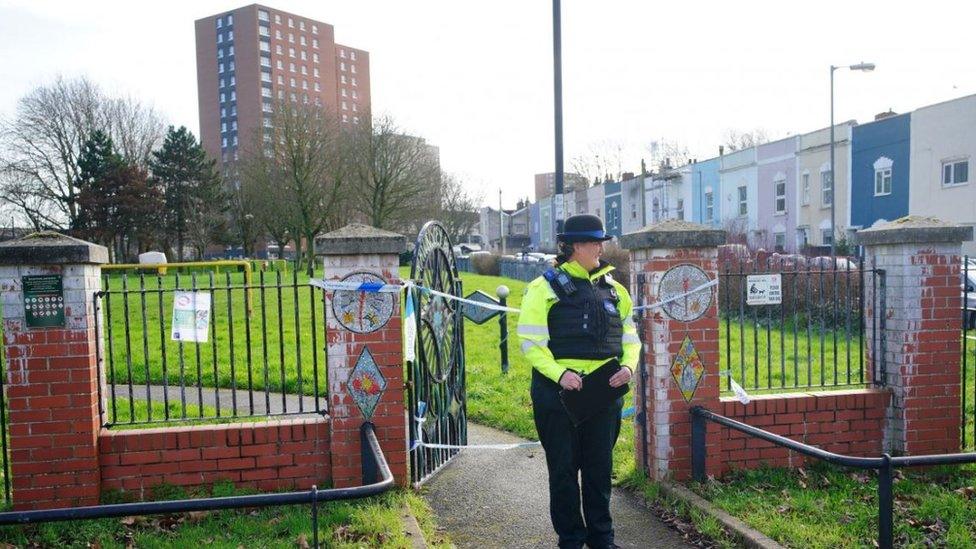
Despite recent incidents, overall the increase of knife crime in Avon and Somerset has slowed dramatically
How bad is knife crime in Bristol?
A number of lives have been lost to knife crime over the last few years, but the overall number of incidents in the city is in line with the national average.
Those who have died since the start of 2023 include Mason Rist, Max Dixon, Darrian Williams, Eddie King Muthemba Kinuthia, Paul Wagland, Mikey Roynon and Hubert 'Isaac' Brown, Adam Ali Ibrahim, and Martin Hefferman.
In 2023, there was an incident involving a knife on average more than once a week, Avon and Somerset Police figures suggest.
The number of stabbings recorded by the force suggest the use of knives in violent crimes is on the increase in the West - with 14% more from 2022 to 2023, the Office of National Statistics has reported, external.
That said, the increase of knife crime in Avon and Somerset has slowed dramatically, from a 53% increase in 2018 to just 4.9% over the past year - resulting in an overall increase of 55 offences.
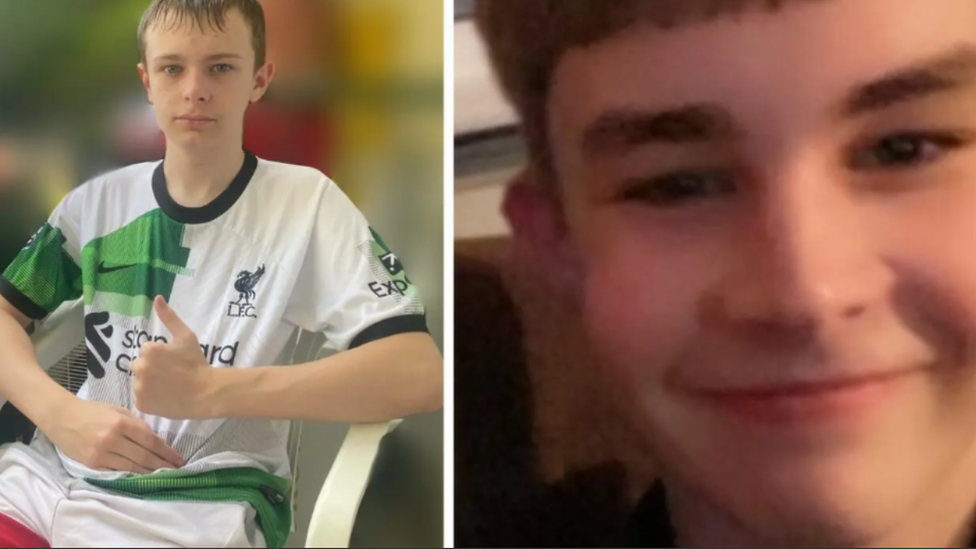
Mason Rist (left) and Max Dixon (right) died after an attack in the Knowle West area of Bristol in January
How does knife crime in Bristol compare to other areas?
Data from the Office of National Statistics, external shows that in 2022/23, West Midlands Police recorded the highest rate of 178 offences per 100,000 population.
In contrast, North Yorkshire recorded the lowest rate of 35 offences each, per 100,000 population.
Knife crime rates in the Avon and Somerset force area are around the national average.


What is being done to combat knife crime?
Community organisations and news outlets in the city, including Bristol Live and Bristol 24/7, have signed an open letter calling for action.
The letter sets out six main points of focus, including raising awareness of knife crime, setting up a community-driven task force, and holding people in power to account for the fatal attacks on young people.
Twice a year, Avon and Somerset Police run Operation Sceptre, a targeted short-term campaign to reduce knife crime, involving measures such as weapons sweeps of public spaces and increased patrols.
Chief constable Sarah Crew recently announced the force would be "standing up a much more high-profile proactive operation".
There are are also many community engagement groups and local youth centres which are helping to support young people - including Park Knowle Football Club and Empire Fighting Chance boxing gym.
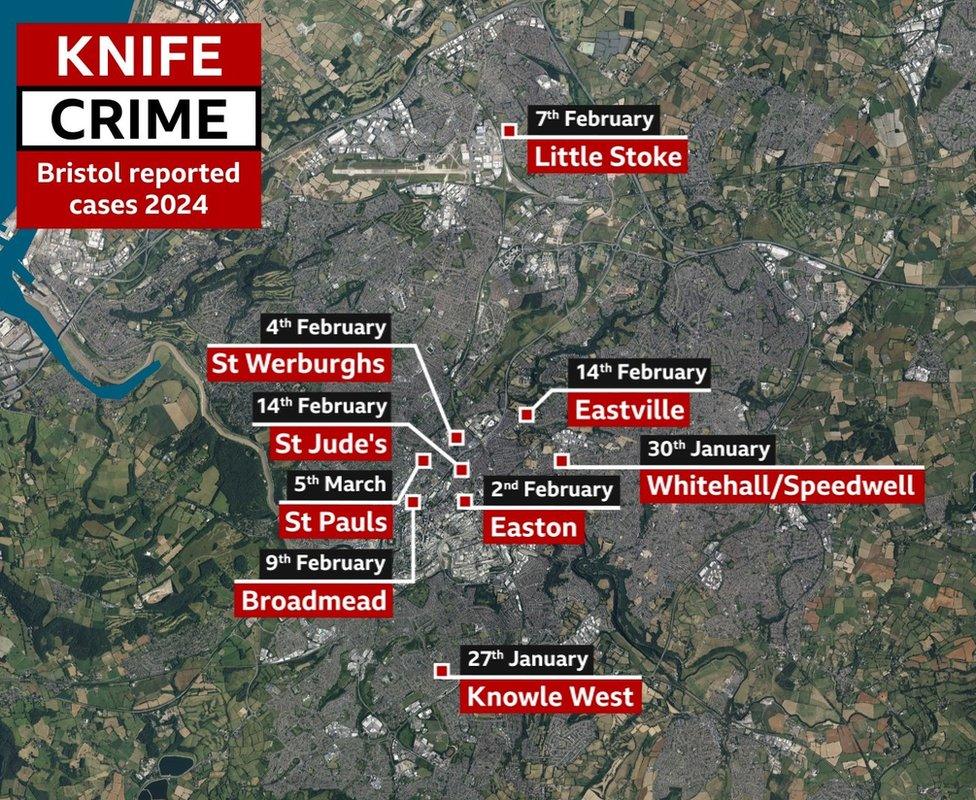
There have been nine stabbing incidents, and four deaths, across Bristol in 2024
I'm a parent and I suspect my child is carrying a knife - what should I do?
Spotting signs of behavioural changes could be key in intervening before they find themselves in a dangerous situation.
Ask yourself - has their attitude towards school and/or their future goals shifted? Do they have new friends you have not met before? Are they defensive or secretive over their belongings?
First and foremost, openly talk to your child about knife crime. Having calm and honest conversations surrounding difficult topics is vital to establishing a safe space for your child to open up.
Accidentally pushing them away could do further damage, so be ready to listen and respond to things that may be hard to hear.
Educate them on the risks and consequences of carrying knives, they may reconsider carrying one.
Try to reinforce the importance and value of their life, and what they can achieve, to help them see a future away from crime.
Who is knife crime most likely to affect?
Knife crime can affect all age groups, but it is the 12 to 24 age group that is the group most likely to carry a knife, and also fall victim to violence involving one, police say.
Data showing the hotspots for serious knife crime suggest there are violent gangs operating mainly in the east Bristol area.
Knives are accessible to most and easily hidden, meaning many harmless confrontations can turn fatal quickly.
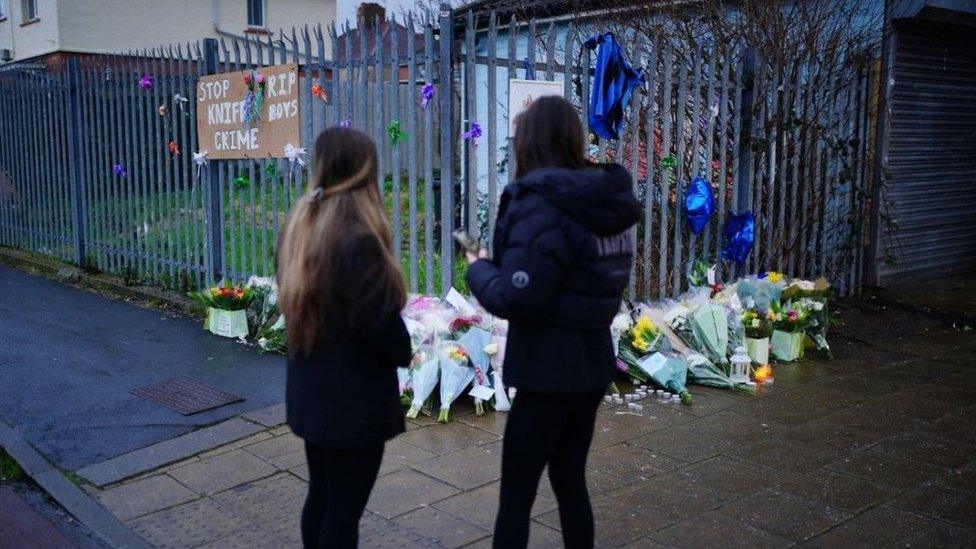
Knife crime can affect all age groups
What could happen if I get caught carrying a knife?
Carrying a knife in a public place without a valid reason is illegal.
Police have the power to stop and search you if they think you may be carrying a weapon.
If you are caught carrying a concealed weapon in public, it could result in a penalty of four years' imprisonment and a £5,000 fine.
Aside from the legal consequences, carrying a knife could put your future or your life in serious danger.
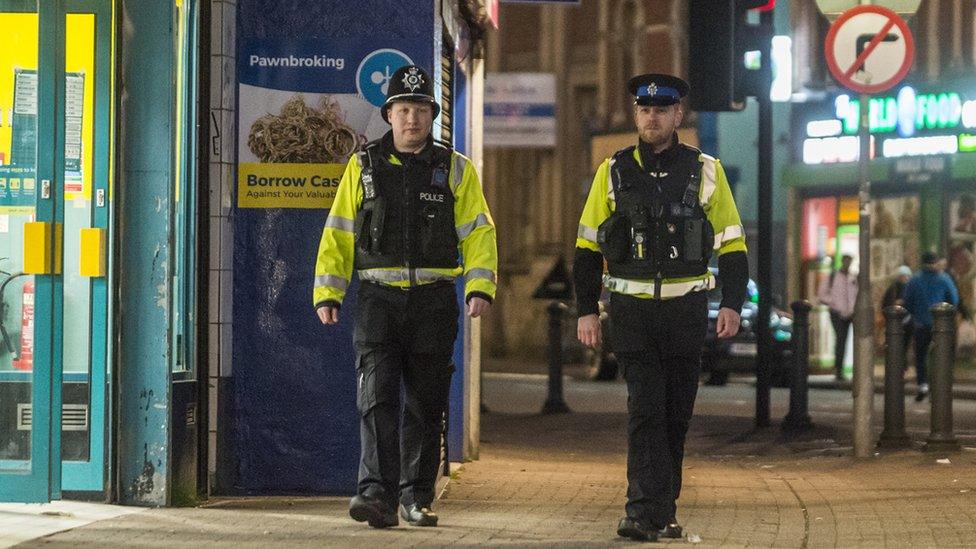
Avon and Somerset Police have been increasing patrols in the city
How can I avoid getting caught up in knife crime?
You may feel pressure from people at school or in your social circles, or feel like it is necessary to protect yourself from harm in a confrontation, but carrying a knife is dangerous.
Avon and Somerset Police have installed 17 amnesty bins across the region for people to anonymously surrender their weapons - no questions asked.
There is one installed in Castle Park in the city centre, one attached to Bridewell Police Station near the Horsefair, and another outside The Park Centre in Knowle.
To get help and support, reach out to an adult you trust like a teacher, youth worker, parent or other family member.
If you feel like you are in danger or are worried about a friend getting caught up in violence, you can call Childline on 0800 1111, external.
Or if you feel that it is an emergency, call the police immediately on 999.

Follow BBC Bristol on Facebook, external, X, external and Instagram, external. Send your story ideas to us on email, external or via WhatsApp on 0800 313 4630, external.
Related topics
- Published6 March 2024
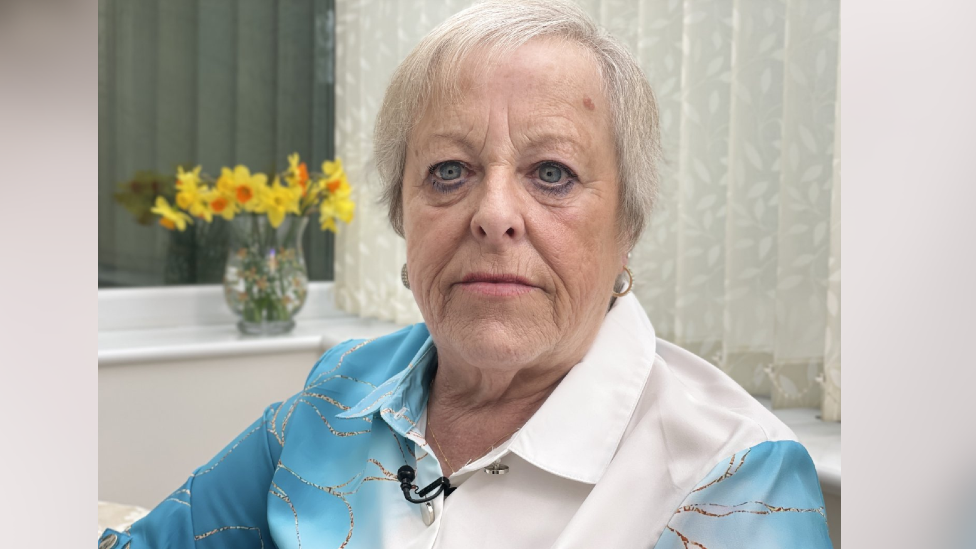
- Published6 March 2024
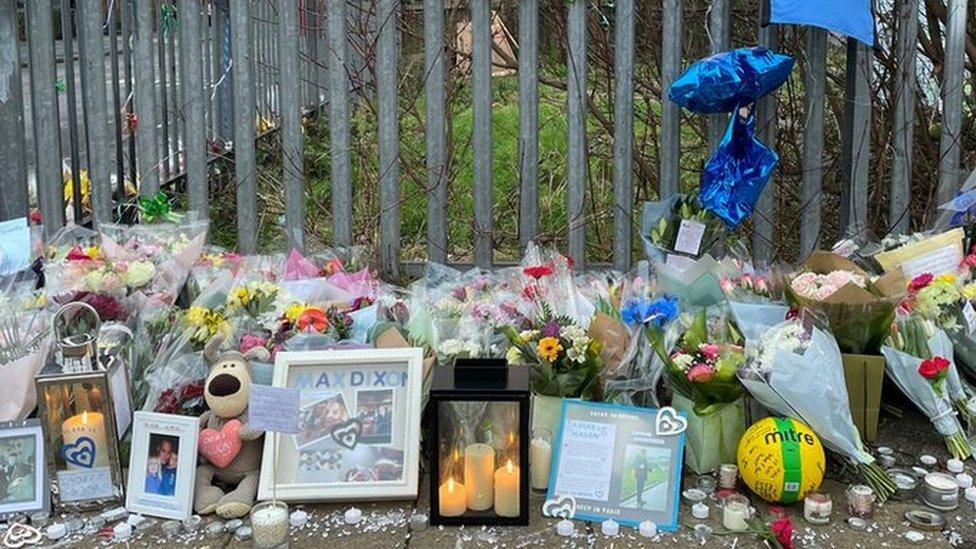
- Published5 March 2024
- Published30 January 2024
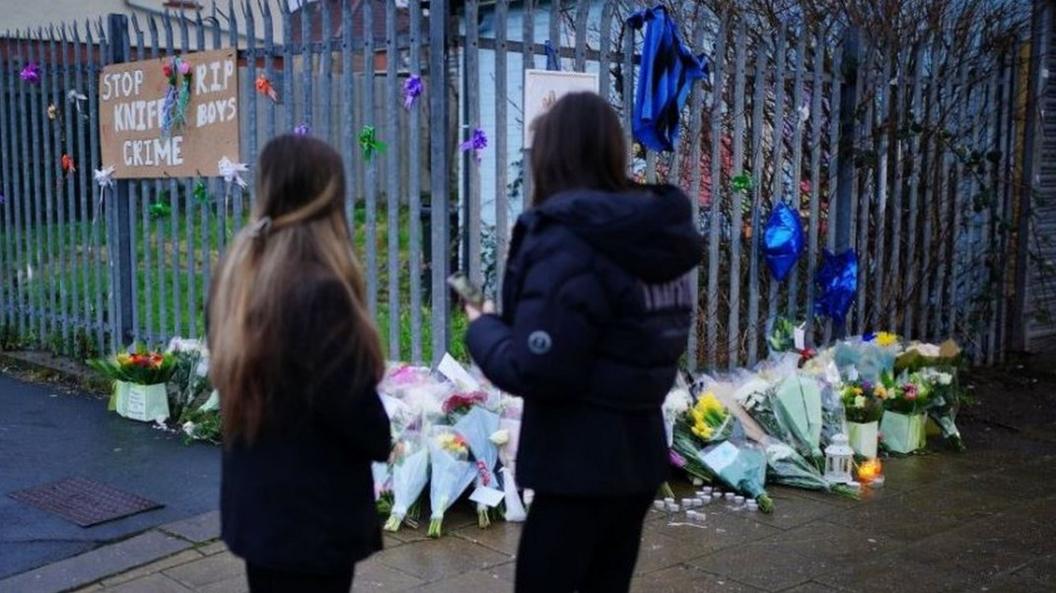
- Published24 October 2023
